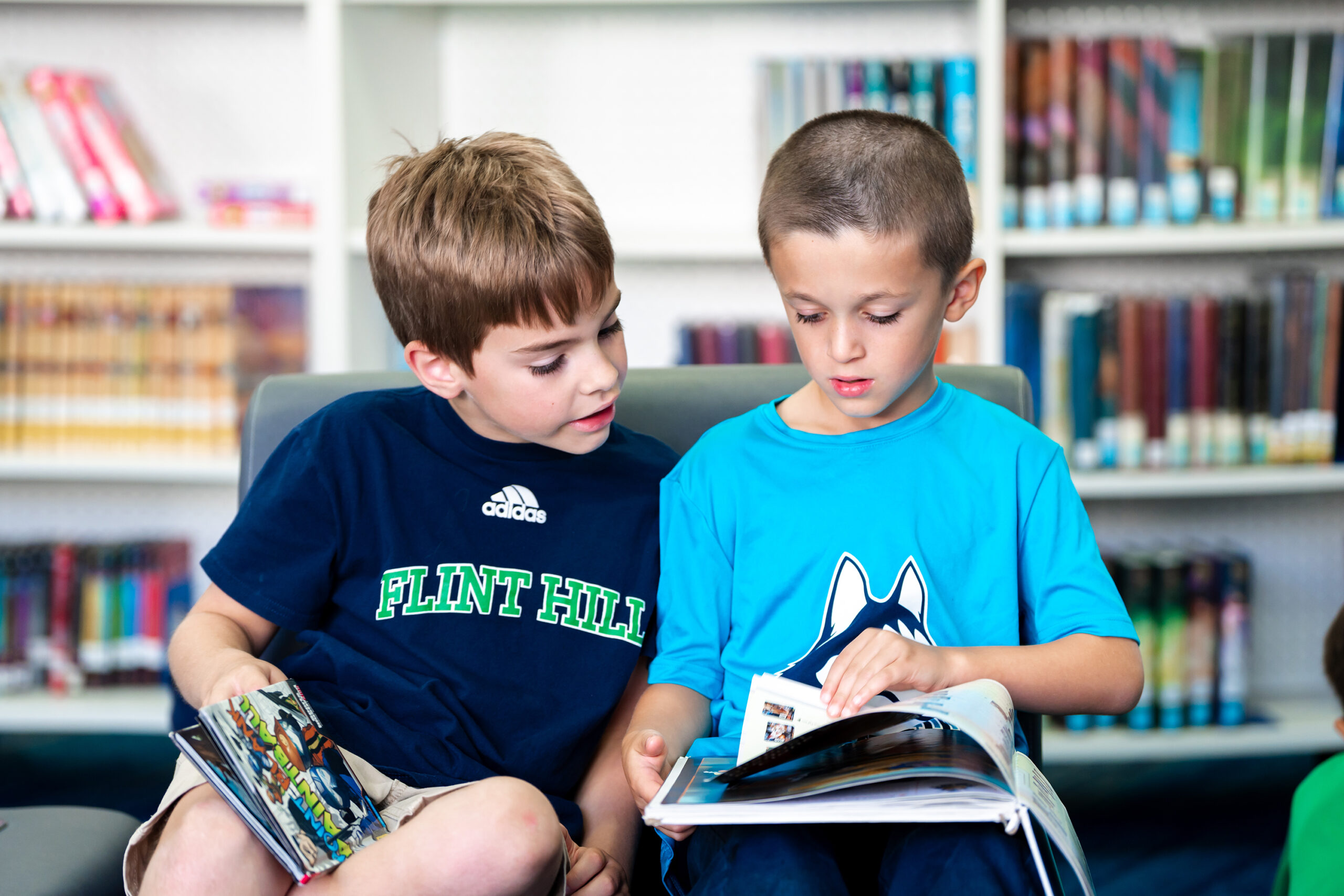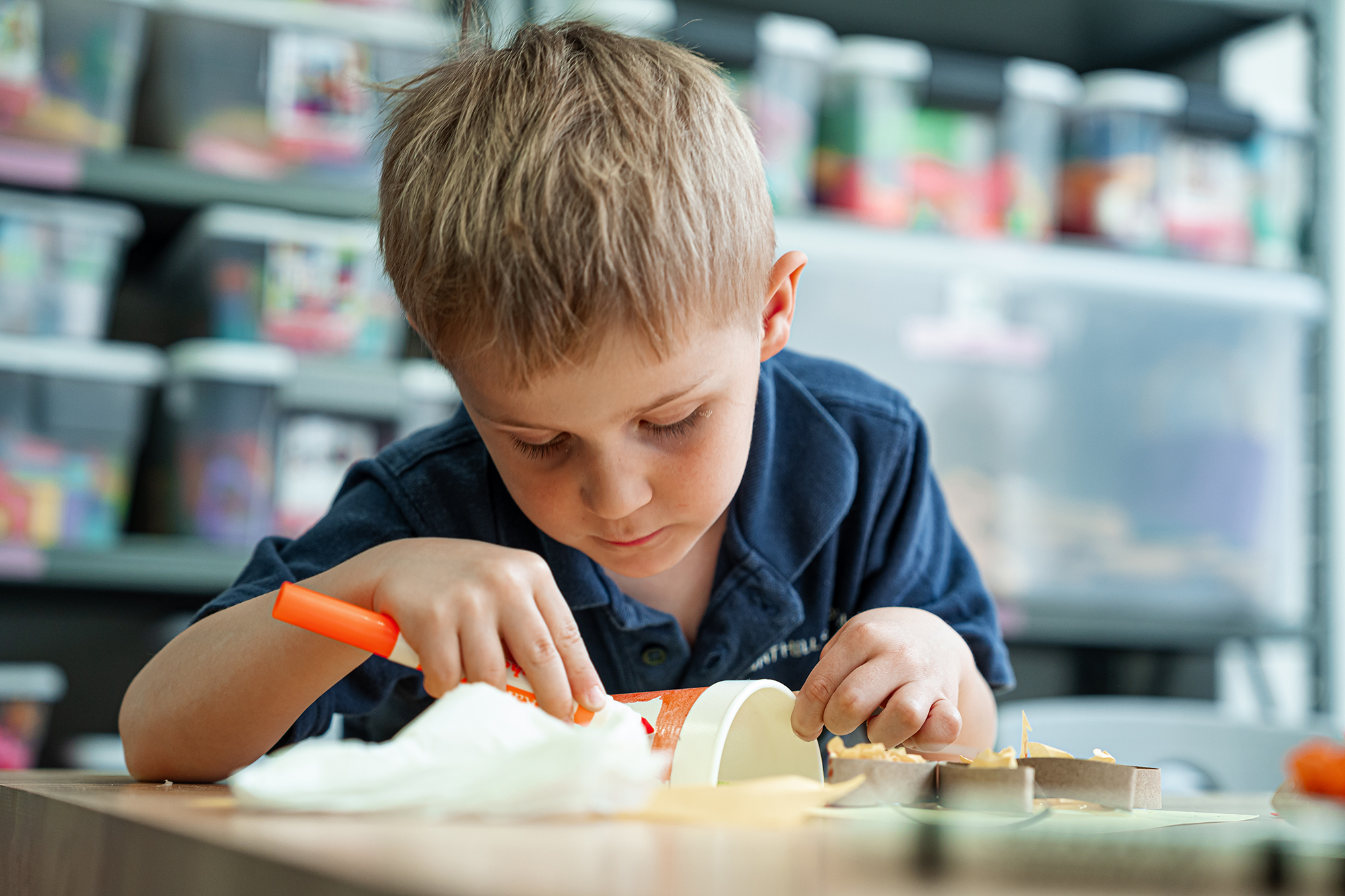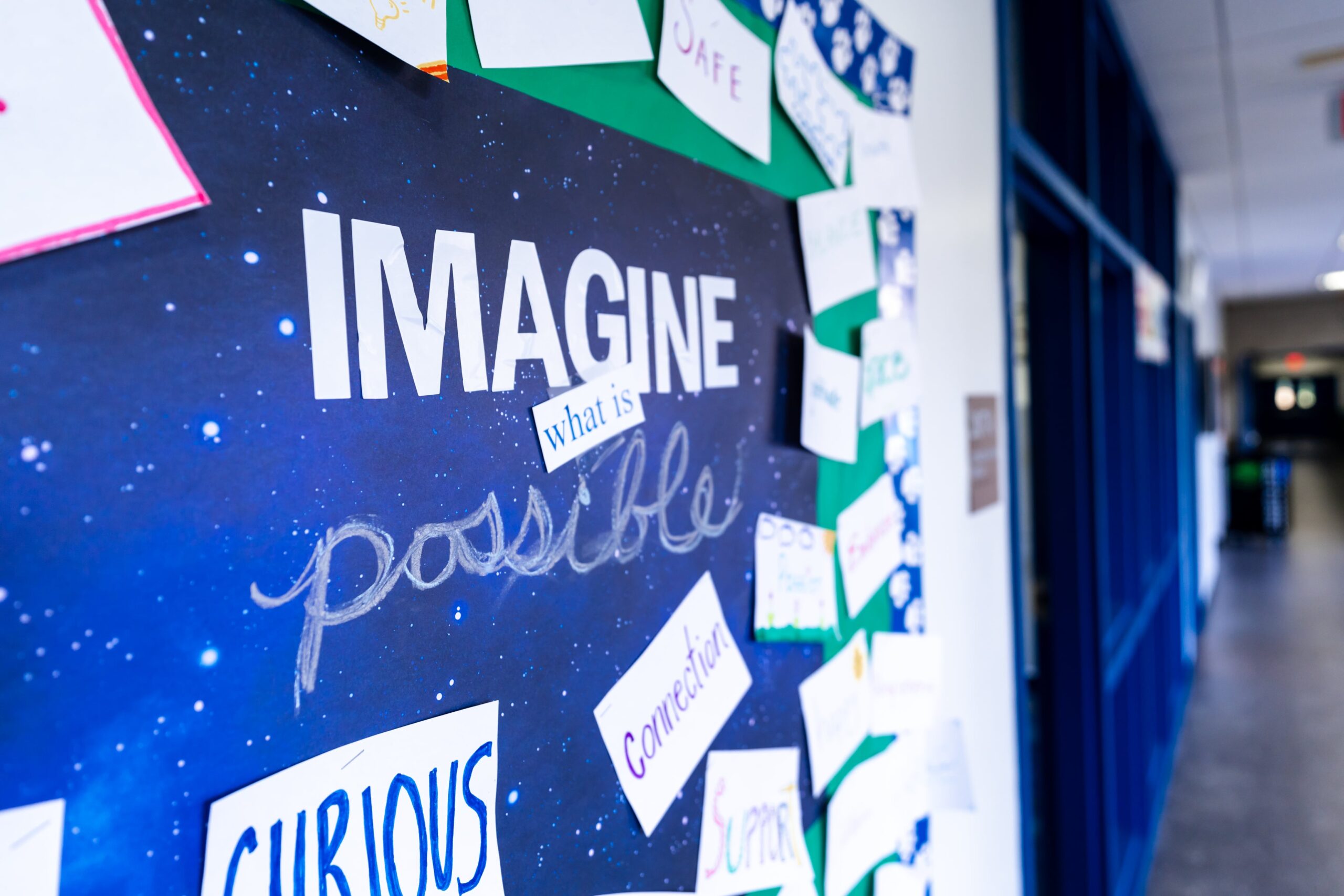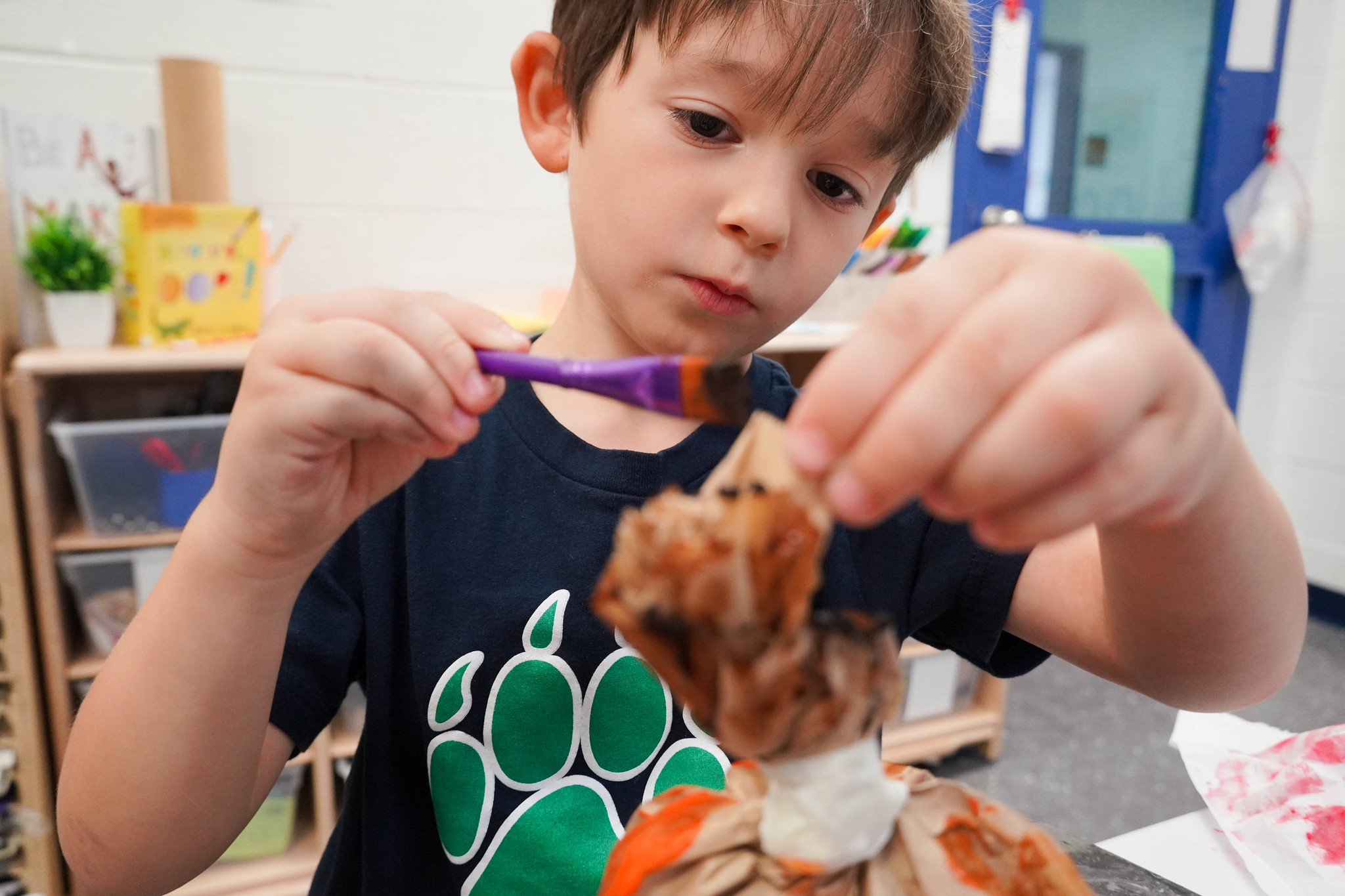LEARN MORE ABOUT FLINT HILL
HUSKY HIGHLIGHTS
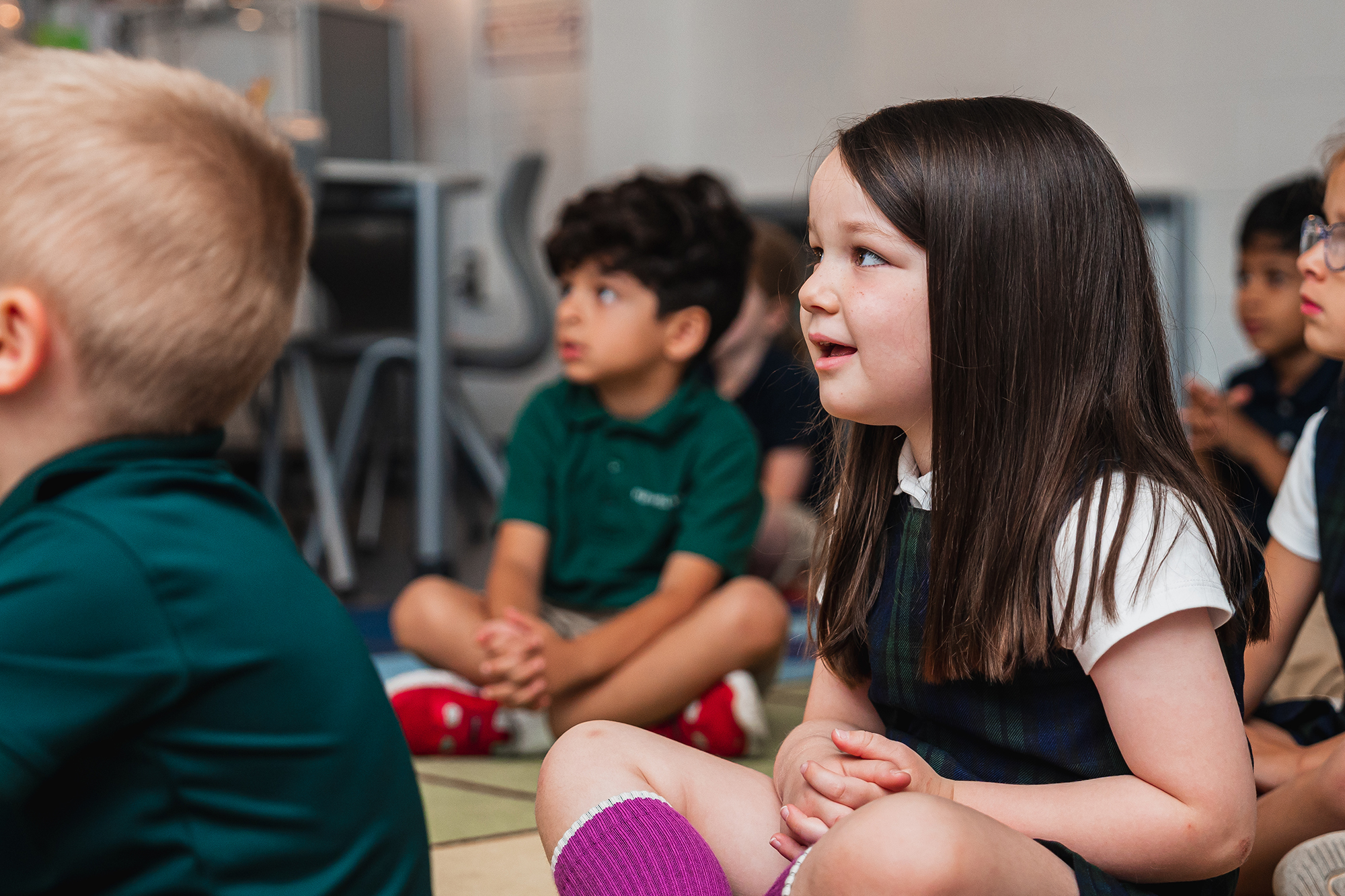
October 31, 2024
By Dawn Hopke, Associate Director of Enrollment Management
What to Consider When Choosing a Preschool
Choosing a preschool for your child is a big decision! These caregivers and teachers will be looking after your most precious cargo, and there’s so much to consider. As a parent, you want an environment that will nurture your child’s development, provide a safe space for exploration, and prepare them for their journey into Kindergarten and beyond. Here, we’ll break down the key factors to look for, the types of programs available, and how to identify the right fit for your child.
Understanding What Preschool-Age Children Need
For children ages 2.5 to 5, preschool is a foundational step. While it’s easy to get caught up in the academic aspects, the most important component of a quality preschool program is its focus on social-emotional learning and executive functioning skills. These will help children thrive in any environment and form the basis of their educational journey.
A good preschool should prioritize:
- A safe, happy environment: Safety and joy are fundamental. Children should feel secure and excited to be there!
- Strong, trusting relationships: Early childhood programs should focus on helping children form solid, positive connections with both peers and adults.
- Social-emotional skills: From impulse control and managing frustration to sharing and negotiating, children are learning to function within a community outside of their family for the first time. Developing these abilities builds their confidence and prepares them for structured learning in the future.
Basic academic skills — like counting, identifying letters, and understanding patterns — are also introduced, but they’re not the primary focus. Rather, these skills naturally follow once children are comfortable with the social and emotional aspects of a classroom environment.
What Do Parents Need to Look For?
One of the biggest challenges for parents is finding a school that aligns with their values and their vision for their child’s early education. When evaluating preschools, think about:
- Mission, vision, and values: Does the school’s philosophy resonate with what you want for your child?
- A collaborative partnership: The best preschools view education as a partnership between home and school, working together to support your child.
- Community life: What type of community are you looking for? Do the hours and distance from your home work for your family?
Remember, at this age, there’s no one “right path.” There isn’t a guaranteed outcome tied to a specific preschool or approach. Focus on finding a place that feels like a natural extension of your family’s values and that you believe will nurture your child’s unique strengths. Keep your family’s needs, schedule, and budget in mind, too.
Exploring Types of Preschool Programs
Preschools have evolved greatly, offering a variety of approaches and focuses to meet diverse family needs. Some common types of programs include:
- Montessori: A child-led, hands-on approach that fosters independence.
- Reggio Emilia: Focuses on creativity, collaboration, and community-based learning.
- Waldorf: Emphasizes imagination and creativity, with a focus on arts integration.
- Religion-based: Incorporates religious education along with structured early learning.
- Co-op: Parents are actively involved in the classroom, often assisting with daily activities.
- Neurodiversity-focused: Programs tailored to support children with specific developmental needs.
What Skills Are Important for Kindergarten Readiness?
Preschool helps children gain the skills they’ll need for Kindergarten, which go far beyond early academics. Some of the key skills your child should develop during preschool include:
- Social-emotional skills: Learning to share, follow group instructions, and understand social cues.
- Fine and gross motor skills: Activities that involve holding a pencil, coloring, skipping, and jumping help children develop coordination and control.
- Self-help skills: From washing hands to zipping coats, independence in simple tasks is key.
- Basic academic skills: Recognizing shapes, patterns, counting, and an interest in books set the stage for future learning.
While reviews can be helpful, keep in mind that personal visits are invaluable. Observing a program in action will give you a real sense of whether it’s a good fit for your child.
Final Thoughts
Every child’s journey is unique, and there’s no single “best” way to prepare them for their education journey. Whether it’s a more traditional program, a play-based approach, or something in between, choose a preschool where your child feels welcomed and you feel aligned with their values and goals. If you’re considering skipping preschool, be sure to find opportunities to help your child develop the skills listed above, as these will be essential in setting them up for a successful transition into Kindergarten.
Associate Director of Enrollment Management Dawn Hopke holds a B.A. from Gettysburg College and an M.Ed. from the University of Virginia. She has spent most of her 25-year independent school career working with families who have children ages 2-13.
LEARN MORE ABOUT FLINT HILL
Fill out the form to receive updates from our team.
RECOMMENDED FOR YOU
A Flint Hill teacher explores how you can create an inclusive library for your young readers at home, along with some book recommendations.
Drawing directly from neuroscience research, Flint Hill's educational philosophy emphasizes the importance of thorough comprehension over hurried advancement.
A VAIS committee completed its 10-Year Accreditation Visit in April 2024. The committee reported its immediate findings in this short presentation to faculty and staff.
Kindergarteners embarked on a project that nurtured their artistic abilities and expanded their horizons to encompass cultural and linguistic dimensions.



